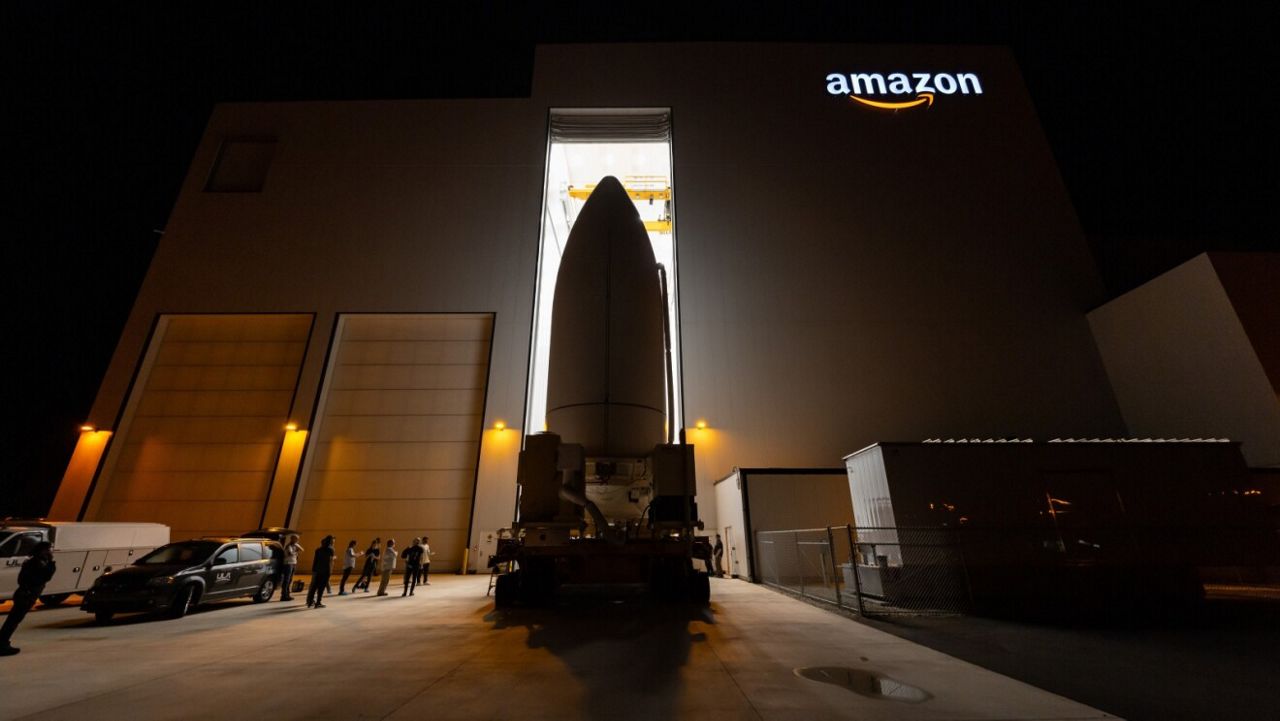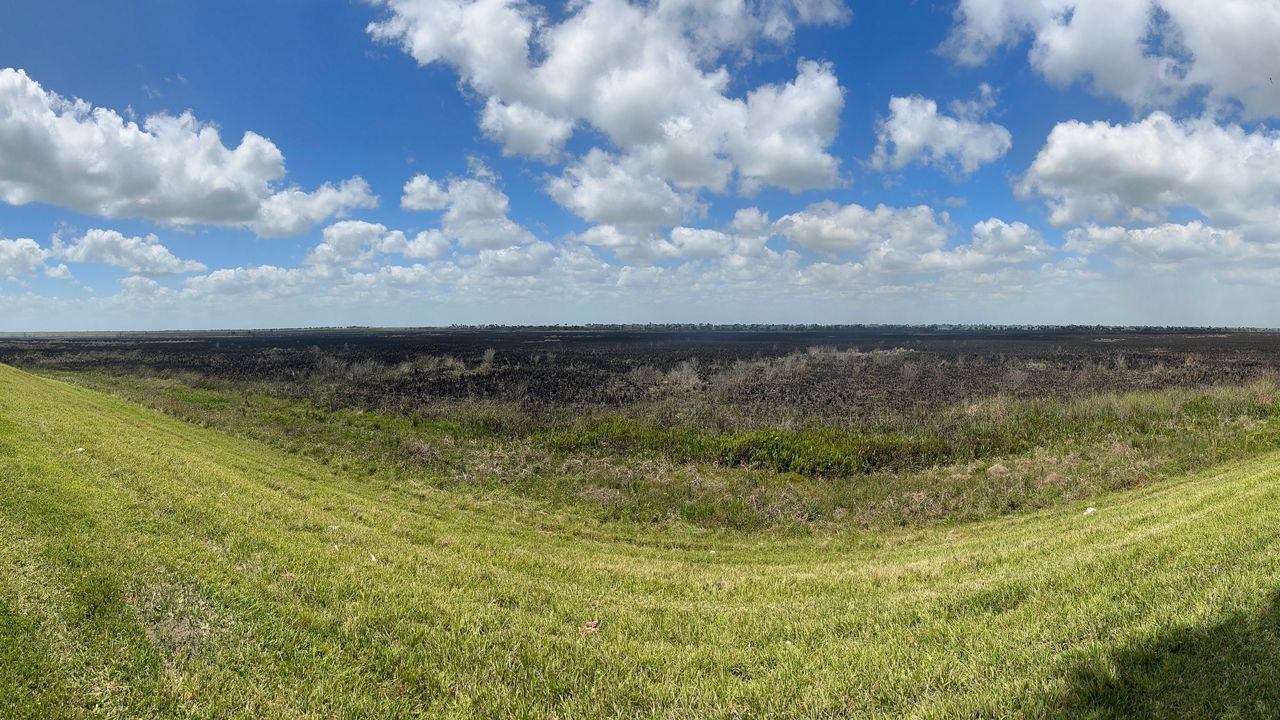PALM BAY, Fla. — The effort to vaccinate as many Americans as possible is expected to take another notable step in the coming weeks, with the approval of the Pfizer vaccine for children ages 5-11.
Some pediatricians in Brevard County are making moves to get ready for that shift, which includes education for the families they serve.
What You Need To Know
- The White House plans to lean on places like pediatricians’ offices and children’s hospitals for the vaccine rollout among children ages 5-11
- Pfizer is currently seeking Emergency Use Authorization from the FDA for its vaccine to be used in that younger age group
- The move would make the vaccine available to 28 million children across the country
On Wednesday, OMNI Healthcare began issuing the Pfizer-BioNTech COVID-19 vaccine at its pediatric offices, including the one in Palm Bay.
Natalia Gerena, 16, said she was eager to get the shot and was surprised at how uneventful it was getting her first dose.
“Yeah, I thought it was going to hurt or, like, take longer, but I didn’t feel a thing,” she said.
Her mom, Elizabeth Gerena, said the family was infected with COVID-19 back in April and that Natalia has been wanting to get the vaccine for some time.
“She’s been the one that’s been wanting it," she said. "She’s been pushing (for) it and finally we said let’s come in and go get it."
Natalia described having COVID as a really hard experience that “messed her body up a lot,” and doesn’t want anyone else to go through what she’s experienced.
“After I had it, I definitely realized that it was important, especially with me going back to school, for me to get the vaccine so I can protect my family and everyone else,” Natalia said.
Medicine where it’s familiar
Across OMNI Healthcare locations in Brevard County, their pediatric offices have acquired a “substantial supply” of the Pfizer vaccine for its patients 12 and older.
Dr. Lizabeth Saint-Hilaire oversees the OMNI Healthcare pediatric office in Palm Bay. She said being able to offer the vaccine in her office will be a great asset since patients and their families feel at ease asking as many questions as they need to feel comfortable getting the vaccine.
“They look to their pediatrician's office for guidance and to feel more comfortable," she said. "So, you know, we're here to answer questions for all of our families and we're here to kind of hold their hand through the whole process."
That level of comfort is something that the White House is looking for as it anticipates the Food and Drug Administration's approval to allow the vaccination of the 28 million children aged 5-11 in the country.
One of the sources the White House will be leaning on in the anticipated rollout will be more than 25,000 pediatricians’ offices and other primary care sites, as well as more than 100 children’s hospitals.
“That's why we're here," said Saint-Hilaire. "I mean, that's the role of the pediatrician, is to know the patient well, know the family well, and help them to make the best decision."
The packaging and dosage will also be different for these children compared to those 12-years-old and up.
In a statement, the White House said in part:
“Pending FDA authorization, the packaging configuration will be 10-dose vials in cartons of 10 vials each (100 doses total), delivered in a newly updated product shipper, and the vaccine can be stored for up to 10 weeks at standard refrigeration temperatures and 6 months at ultracold temperatures. And, the vaccine will come with all the ancillary supplies that providers need to serve kids, including smaller needles.”
Orange County parent Steve Bubar said it doesn’t matter where the vaccine is available, he and his 8-year-old will be there as soon as it’s approved.
“Our youngest, he’ll be eligible — we’ll be there the first day," Bubar said. "I mean, we’re so ready."
Getting a COVID-19 vaccination is like putting on a helmet before riding your bike, Bubar said, and it was a personal experience that made him extra cautious for his family.
“My brother came down with Covid back before vaccines were available for everybody," Bubar said. "And what he went through was just so painful for him."
What’s at stake
The impact of the Delta variant has had a significant impact on children and how they interact with COVID-19. Since the start of the pandemic, the American Academy of Pediatrics and the Children’s Hospital Association found that as of October 14, about 6.2 million child COVID-19 cases were reported, representing 16.4% of all cases.
Just during the week of October 7-14, those agencies reported 130,575 child cases, or 25.5% of all cases reported that week.
Another patient of Saint-Hilaire who came in on Wednesday was there for a flu shot, but had already received the COVID-19 vaccine from another source.
Giovanni Bravo, 17, said he has muscular dystrophy and getting vaccinated was a top priority for him and his family.
“Since I’m a high risk with the condition I have, I didn’t want to get sick," he said. "So, (getting the vaccine) helped me go back to school so I could be around people. I’ve been around people that have had COVID and so far, I’ve been OK. It protects me and everyone around me.”
According to a study by the U.S. Centers for Disease Control and Prevention, the Pfizer vaccine is 93% effective in preventing hospitalization for children aged 12-18. Among the 179 patients in the study who were hospitalized with COVID-19, 97% were unvaccinated.
A study from Pfizer last month showed that its vaccine was safe for children 5-11 using a 10-microgram dose, which is smaller than the 30-microgram dose used for patients 12-years-old and up.
A meeting of the FDA’s advisory committee is scheduled for Tuesday, October 26 to discuss the request for an Emergency Use Authorization for the Pfizer vaccine in that younger age group.









